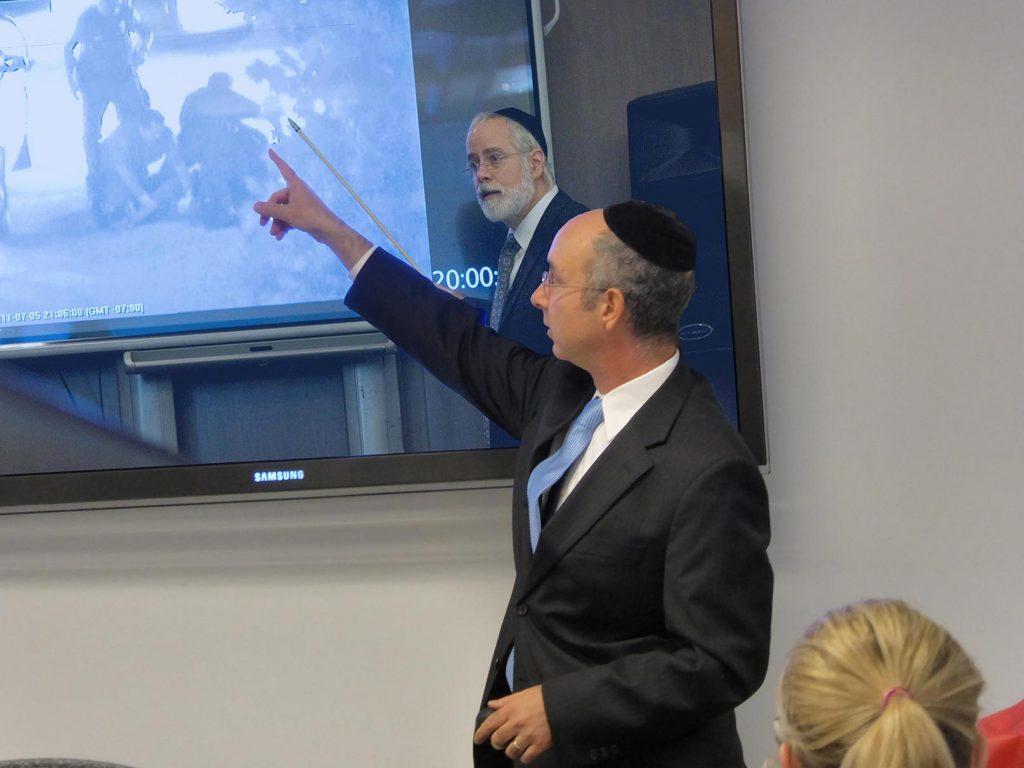Video and audio evidence in courtrooms – creating the best environment for judge and jury to view and listen to your evidence
Because courts often have very limited funding, it is very common for courtroom audio and video playback technologies to be outdated, which could greatly take away from the effectiveness of your digital media evidence. Because of this, attorneys often find themselves in court with outdated video projection systems, inflexible and low-quality sound systems, and limited computer playback capabilities. In those very common situations, an attorney wanting the highest quality playback of their video or audio evidence must encourage his or her client to hire outside tech experts to set up proper digital media playback systems to support expert witnesses testifying on their case.
Best practices for setting up your audio and video presentation system for effectively utilizing media evidence in court
Some attorneys are simply not comfortable or familiar with certain digital media playback technologies — but remember, it’s not their job to operate a computer! Yet, in an active courtroom, where appearance often consistently influences jury decisions, it’s important — even crucial — that the attorney makes a conscious effort to run a smooth and seamless presentation of the video or audio evidence that is free from any technical glitches.
It just looks bad — and believe me, we’ve seen it! — when an attorney is fumbling around with the digital playback of the audio or video evidence while at the same time trying to make a point to the judge and jury. Fumbling with technical equipment makes an attorney look old-fashioned and unprepared. Bottom line: An unprofessional presentation will lose the trust of the jury, and no one understands this more than video and audio forensic experts.
Setting up a system in court, either to play PowerPoint presentations or direct video or audio clips
Video and audio playback systems provided by the court are almost allways insufficient and outdated. Often, a system provided by a court is either 1) a video projection system that is not bright enough to show your evidence properly, or 2) an old TV that is not big enough for both the jury and the judge to see the video evidence clearly. In either case, the important details of your evidence are lost.

Instead, we recommend a large, flat screen high definition television for showing video evidence, and a large speaker for playing audio evidence. Ideally, you will usually need to rent a separate smaller screen specifically for your judge or possibly for witnesses. If there is audio evidence, we recommend a separate audio speaker on a tripod stand with volume that can be fully controlled separately from the flat screen television by your video expert. This way you have the option to play audio independently of video.
Presentation of the video evidence
A lawyer should rarely operate video or audio playback in the courtroom. Playing your own video or audio evidence in front of a judge and jury is often a recipe for disaster, as it often leads to a less than smooth oral argument. Instead, bring in a legal forensic video technician expert.
Benefits of having a legal video forensics expert or technician in the courtroom during trial
A video and audio forensic expert is usually hired to clarify details within digital media evidence. Sometimes it is crucially important to discern movement, a shadow, a gunshot blast, or the passing of a car in a surveillance camera video — and all these might be very difficult for a judge, mediator, jury, or maybe one of your other experts, to see, in the evidence as it exists in the original state.
You will be playing back your enhanced video or audio evidence numerous times throughout court proceedings — during opening and closing arguments, for your witnesses, for experts, and during cross examination. Sometimes even during court you will need to repeatedly play back a small section of your digital media evidence to help make your point as clear as possible. Repeated viewing of digital media evidence allows for clear perception of the video and audio information.
During each of these views, maybe with a comparison to the original video, counsel will also be giving an oral presentation. It is virtually impossible for an attorney to both operate the video playback numerous times and focus on their job of strategizing a line of questions, asking the questions, rebutting objections, and speaking persuasively. When you have an expert video technician doing this playback job for you, it will free you up to focus on your job.
Here is an example with images of a full technical audio and video setup in a courtroom.